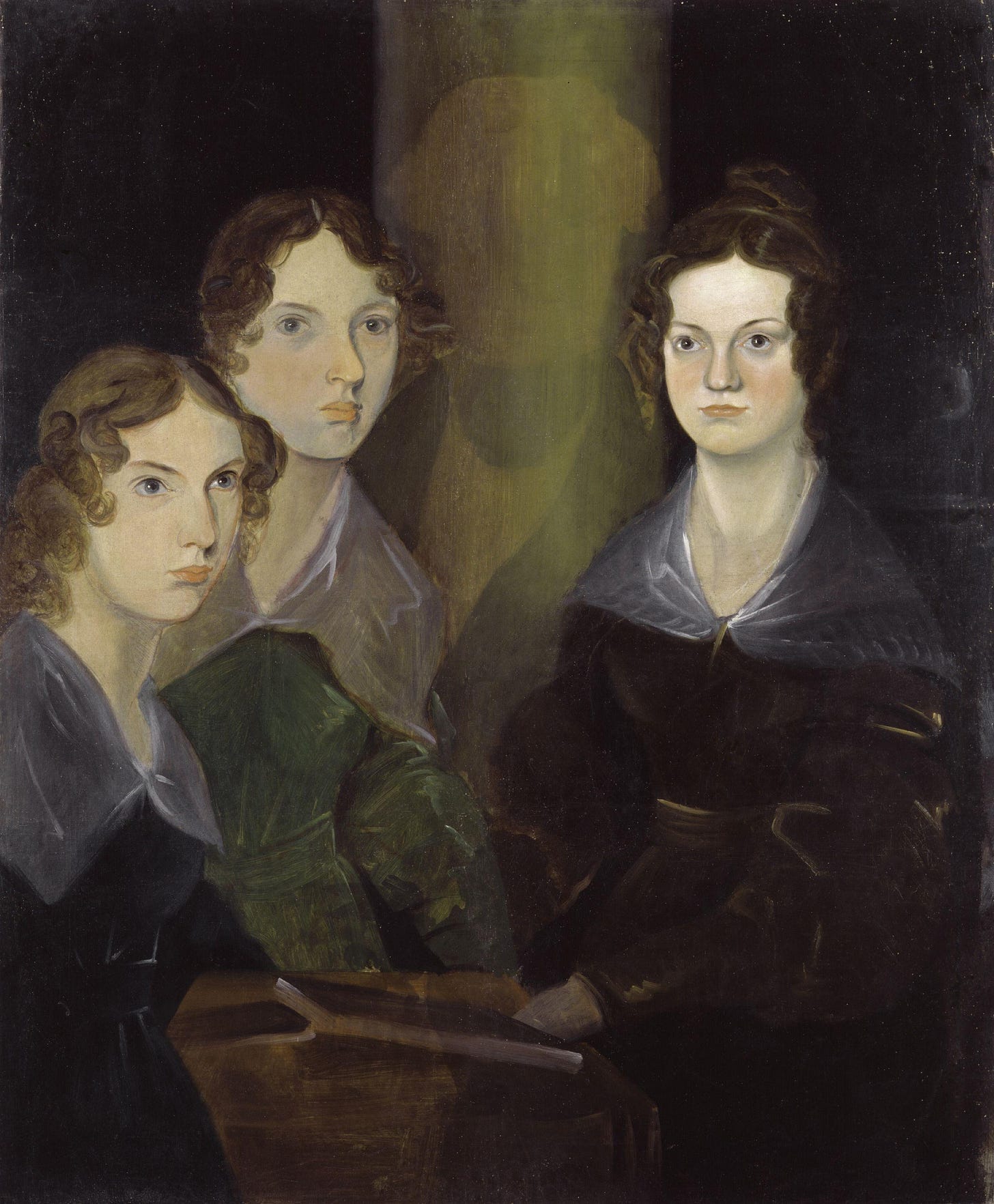What The Brontës Knew About Writing (And How You Can Learn From It)
The sisters had a knack for capturing their audiences.
Reading classic literature is like jumping into a souped-up Delorean and driving into a distinctly different world.
The language is different — the prose dips and bends in ways it doesn’t in modern literature — and the protagonist is somehow relatable even though they live in a culture entirely different than our own. From the Brontës to Austen to Dickens to Tolstoy, classic writing was an art that entertained millions, even centuries post-publishing. It’s a skill that we mere mortals can’t possibly emulate today.
Except that we actually can.
The Brontës and others of their ilk can teach us a lot about our craft if we can only learn to listen, and the advice we can pull from their work is surprisingly simple.
And as it happens, it’s absolutely emulatable.
Even a “Plain Jane” Can Be a Heroine
Never was there more passion and strength in a single soul than there was in Jane Eyre, the unlikely heroine from Charlotte Brontë’s Jane Eyre.
“Do you think, because I am poor, obscure, plain, and little, I am soulless and heartless? You think wrong! I have as much soul as you, and full as much heart!…it is my spirit that addresses your spirit; just as if both had passed through the grave, and we stood at God’s feet, equal—as we are! — Jane Eyre
Jane Eyre is plain and little and strange, but she’s fire. She loves fiercely and permanently, and despite her injured little heart she repeatedly forgives and somehow loves even harder after she does. She’s not perfect, but she’s the perfect heroine because we’re all just as beautifully flawed as she is — and almost as tough.
Brontë proves that the best heroines are those that are relatable — in all the best and worst ways.
When you’re writing your characters, don’t focus on their external beauty; as cliche as it is, it’s their internal fire that counts (and makes for a great read.)
Let Your Cleverness Flow
Who would Jane Austen’s Elizabeth Bennet be if she wasn’t gracefully sarcastic and exceptionally clever? Austen wrote as a woman from that period would think, and that was cleverness in itself.
Characters in the classics spoke with eloquence and true wit, and their conversations flowed in a way that can’t be matched today. The narration, too, was just as clever — take this quote, for example, from Pride and Prejudice:
“It is a truth universally acknowledged, that a single man in possession of a good fortune, must be in want of a wife.” — Pride and Prejudice
This is one of the best sentences in the entire book, and it’s because of its effortless, undeniable wit. It’s both true and sarcastic — a man with a lot of money would indeed be quite ready for a wife, but the phrase “must be in want of a wife” suggests that he’s still looking. In truth, a single man of large fortune wouldn’t have to look long, and therefore wouldn’t be in want of a wife — or of anything, for that matter.
Austen, like other classic writers, knew how to bend the English language into clever, witty phrases and entire dialogues that stuck in our minds for literal centuries.
When you write, make sure your work flows naturally. Read it out loud, edit the clunky bits, and for goodness sake — add some cleverness. String your reader along with witty banter and intriguing plots, and you’ll make your mark in the literary world, too.
This sounds harder than it is — you have a story to tell, after all. Just tell it.
Honest (and Realistic) Characters Are Fascinating
There are so many stories these days in which the main characters are flawless humans who never fail.
Characters like Rey Skywalker, for instance. She’s evidently born with incredible abilities, fixes Han Solo’s ship without really having to think about it, and ends up being one of the best Jedis ever without really having to try too hard. She never loses and never sucks.
In fact, I’d say that as a character, she sucks because she never sucks.
Humans, on the other hand, suck.
A lot, actually. We make mistakes all the time and we often don’t learn from them. We fail. We trip and fall. We hurt people. We hurt ourselves.
The classics are full of real people who make real mistakes. They, like us, are suffering from at least some trauma and that affects their relationships and actions.
Heathcliff, for example, the tragic and obsessive man tormented by Catherine in EmilyBrontë’s Wuthering Heights is a very wounded human. As a boy, he was endlessly harassed and degraded by Hindley and as a result, he became a very angry, resentful person.
And one that the world has remembered.
"I’d not exchange, for a thousand lives, my condition here, for Edgar Linton’s at Thrushcross Grange—not if I might have the privilege of flinging Joseph off the highest gable, and painting the house-front with Hindley’s blood!’.” — Wuthering Heights
People are deeply flawed, but that adds to their complexity and intrigue. When you write, make sure that your characters are real people, with real issues and flaws, because that is what will resonate with your readers the most.
It’s okay for them to suck for a bit.
Write Because You “Cannot Help It”
In one of Charlotte Brontë’s journals during her time as a governess, she wrote, “I'm just going to write because I cannot help it.”
It’s widely believed that Charlotte was struggling when she penned those words with her perception (or desired perception) of fantasy versus reality. She was teaching at the time but her inner writer could never stop working; could never stop creating.
Therefore, write because you must. Write because not to write would be worse for the world.
Write because you cannot help it.



